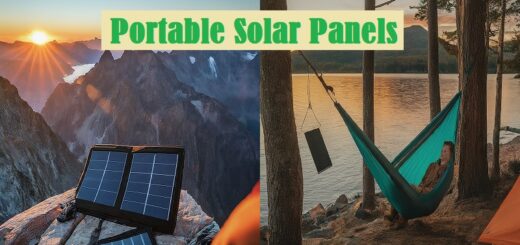Solar Panels System for Home and Industry in South Africa
South Africa basks in sunshine for a large part of the year, making it a prime candidate for solar energy. Harnessing this natural resource with solar panel systems can bring significant benefits, from reducing electricity bills to lessening your environmental impact. If you’re considering making the switch to solar power, this guide provides a comprehensive overview of solar panel systems in South Africa. Solar Panels System for Home and Industry in South Africa
Sunshine in a Box: How Solar Panels Work
Solar panels are made up of photovoltaic (PV) cells. These cells convert sunlight directly into electricity through a process called the photovoltaic effect. When sunlight hits the PV cells, it knocks electrons loose, creating an electric current. The more sunlight, the more electricity generated.
Building Your Solar Power Plant: System Components
A solar panel system is like a mini power plant for your home. Here’s a breakdown of the key components:
Solar Panels: These capture the sunlight and convert it into electricity. There are various types available, each with its efficiency and price point.
Solar Inverter: This crucial component transforms the direct current (DC) electricity produced by the panels into usable alternating current (AC) electricity for your home appliances.
Mounting System: This secures the solar panels to your roof, ensuring they remain stable and angled for optimal sunlight capture.
Optional: Batteries: While not essential, batteries allow you to store excess solar energy generated during the day and use it at night or during power outages.

Going On-Grid or Off-Grid? Choosing the Right System
There are two main types of solar panel systems in South Africa:
Grid-Tied System: This is the most common option. The system connects to the national electricity grid. During the day, your solar panels generate electricity that powers your home. Any excess energy feeds back into the grid, and you may receive credits from your utility company. At night or on cloudy days, you draw power from the grid as usual.
Off-Grid System: This system is entirely independent of the national grid. It’s ideal for remote areas without grid access. However, you’ll need a larger battery bank to store enough energy for nighttime and extended cloudy periods. Off-grid systems are generally more expensive upfront but offer complete energy independence.
Sizing Up Your Needs: How Much Power Do You Need?
The size of your solar panel system depends on your household’s electricity consumption. Factors to consider include the number of occupants, appliances used, and hot water needs. Consulting with a qualified solar installer will help you determine the optimal system size to meet your energy demands.
The Financial Benefits of Solar
Solar panels offer several financial advantages:
Reduced Electricity Bills: By generating your own clean energy, you rely less on the grid, leading to lower electricity bills.
Government Incentives: The South African government offers various incentives, like tax rebates and feed-in tariffs, to encourage solar adoption. These incentives can significantly offset the upfront cost of a solar panel system.
Increased Property Value: Homes with solar panels are often seen as more sustainable and energy-efficient, potentially increasing their market value.
The Environmental Benefits of Solar
Solar energy is a clean and renewable resource. By switching to solar, you contribute to:
Reduced Carbon Footprint: Solar power generation doesn’t produce greenhouse gases, helping combat climate change.
Reduced Reliance on Fossil Fuels: Solar helps lessen dependence on non-renewable fossil fuels, promoting energy security and sustainability.
Cleaner Air: Solar energy doesn’t contribute to air pollution, improving air quality and public health.
Shining Bright: The Installation Process
The solar panel installation process typically involves these steps:
Site Assessment: A qualified installer will evaluate your roof space, sun exposure, and electricity needs to determine system suitability.
System Design: The installer will design a customized system based on your requirements and budget.
Permitting: Obtaining necessary permits from your local municipality might be required.
Installation: The installer will mount the solar panels, connect them to the inverter and electrical system, and perform a safety check.
Grid Connection: For grid-tied systems, the installer will connect your system to the national electricity grid.
Maintenance and Warranties
Regular maintenance is vital to ensure optimal performance:
Cleaning: Periodically cleaning the panels removes dust and debris, maximizing sunlight absorption.
Monitoring: Most systems offer monitoring options to track electricity generation and system health.
Warranties: Solar panels and inverters typically come with warranties, so ensure you understand the terms and conditions. Reputable installers will offer warranties on their workmanship as well.
Choosing a Solar Panel Installer
Selecting the right installer is crucial for a successful solar experience. Here are some tips:
Get Multiple Quotes: Compare quotes from several qualified installers to find the best value and service.
Check Credentials: Ensure the installer is certified by a reputable body like the South African Photovoltaic Industry Association (SAPVIA).
Experience Matters: Choose an installer with a proven track record and experience with similar projects to yours.
Read Reviews: Research online reviews and customer testimonials to get an idea of the installer’s reputation.
Financing Your Solar Dream: Making it Affordable
The upfront cost of a solar panel system can be a hurdle. Here are some financing options to consider:
Cash Purchase: If you have the funds available, a cash purchase allows you to maximize financial benefits with no interest charges.
Solar Loans: Several financial institutions offer loans specifically for solar panel installations.
Government Grants: Some government programs provide grants or rebates to help offset the cost of solar systems.
Power Purchase Agreements (PPAs): Under a PPA, a third-party company installs and maintains the solar system on your property, and you purchase the electricity generated at a fixed rate.
Is Solar Right for You?
Solar panel systems offer a compelling combination of financial savings, environmental benefits, and energy independence. Here are some factors to consider when deciding if solar is right for you:
Your Roof: Your roof should have sufficient south-facing unshaded space to accommodate the number of panels needed.
Sun Exposure: Areas with ample sunlight hours are ideal for optimal solar energy generation.
Electricity Consumption: Homes with high electricity usage will benefit more from the cost savings of solar power.
Budget and Investment Horizon: While the upfront cost might be significant, solar systems offer long-term financial rewards.
Some additional points you might consider including in your guide:
Types of Solar Panels: Briefly discuss the different types of solar panels available, such as monocrystalline, polycrystalline, and thin-film, highlighting their advantages and disadvantages.
Roof Considerations: Expand on roof suitability by mentioning factors like roof material (e.g., metal roofs are ideal), age, and structural integrity.
Battery Technology: Briefly explain different battery storage options like lithium-ion batteries, their impact on system cost, and their role in self-sufficiency.
Safety Measures: Touch upon safety aspects like ensuring proper electrical wiring and inverter installation by qualified professionals.
Environmental Impact Beyond Carbon Footprint: Mention how solar power reduces water usage compared to traditional energy sources that rely on cooling processes.
Community Solar Programs: Briefly discuss the possibility of participating in community solar programs where a shared solar array generates electricity for multiple homes.
Going Beyond Homes: Conclude by mentioning the potential of solar energy for businesses, farms, and even large-scale solar power plants.
Remember, this is just a suggestion. Feel free to choose the information that best complements your overall structure and target audience.
Embrace the Power of the Sun
South Africa’s abundant sunshine makes it a prime location for harnessing solar energy. Solar panel systems offer a sustainable and cost-effective way to power your home. By carefully considering the system type, size, financing options, and choosing a qualified installer, you can embark on a journey towards energy independence and a brighter future.
Additional Resources:
South African Photovoltaic Industry Association (SAPVIA): https://sapvia.co.za/
Department of Mineral Resources and Energy (DMRE): https://www.dmr.gov.za/
National Energy Regulator of South Africa (Nersa): https://www.nersa.org.za/
This guide has hopefully equipped you with the knowledge to make an informed decision about solar power for your home. Remember, the sun is a powerful resource, and by harnessing its energy, you can contribute to a sustainable future for South Africa.


















6 Responses
[…] Read More: Solar Panels System for Home and Industry in South Africa […]
[…] Read More: Solar Panels System for Home and Industry in South Africa […]
[…] Read More: Solar Panels System for Home and Industry in South Africa […]
[…] Read More: Solar Panels System for Home and Industry in South Africa […]
[…] Read More: Solar Panels System for Home and Industry in South Africa […]
[…] Read More: Solar Panels System for Home and Industry in South Africa […]